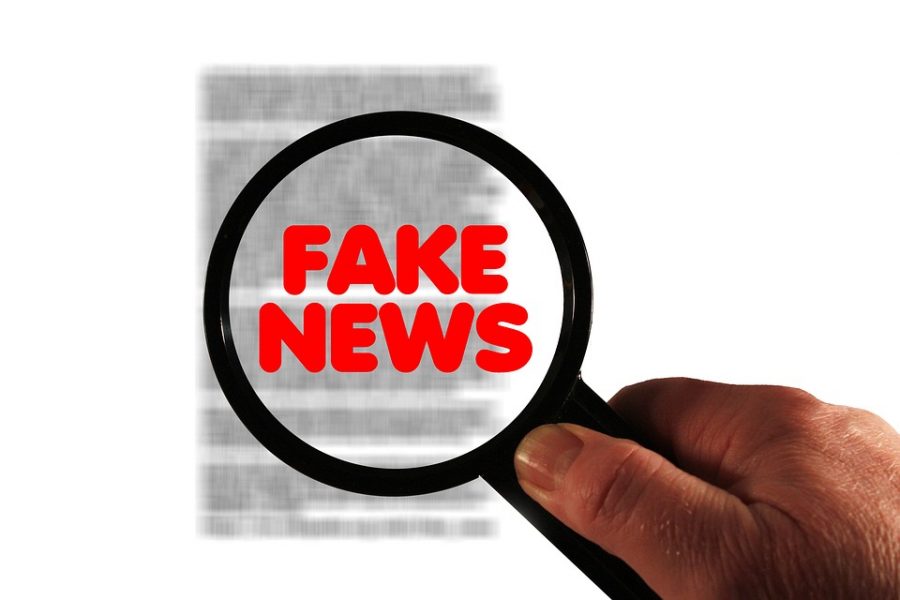These days it’s hard to consume your preferred news source without encountering the newly popularized phrase “fake news.” After a seemingly innocuous appearance at a White House press conference in 2016 for the then President-elect, most Americans probably thought very little of its potential implications. Since its contemporary inception into the American political conversation, the “fake news” moniker has succeeded in doing what many scholars and authors of times past have ominously warned us about: created an exceedingly large gray area between the public’s perception of fact and fiction.
Fake news can be defined as a deliberate intention by the manufacturer to perpetuate falsehood through conspiracy, hoaxes or fabricated accounts of truth. Notice here that the differences between fake news and propaganda, are slim to none. Fake news isn’t biases, selective reporting inconvenient truths, reporting that seeks to, or happens to offend the consumer or doesn’t fit the outcome of the reader’s personal narrative. For many these caveats might be unfortunate. The great thing about facts though, is that they exist and hold true regardless of how anyone feels about them. Facts do not operate on perception.
After the recent mass-shooting in Las Vegas, the usual suspects from both far-right and far-left news agencies departed from the simple reporting of facts in an attempt to understand possible motivations of the shooter. Unsubstantiated conclusions proceeded to flood the airways, and ignorant ranting abounded. One side claimed in an article by The Independent and another by The Sun that the shooter had ties to the Middle East as evidenced by his recent visit to the region suggesting that this provided him the opportunity to become a radicalized soldier of the terror group ISIS. The news outlets from the other side of the political spectrum like The New York Times, seemed to focus more on the FBI’s official statement claiming that the shooter had zero ties to any terror group, or Islam for that matter. Claims of fake news stemming from the right immediately began to cloud the dialogue. Reporting on given facts is not only a far cry from fake, it’s precisely the goal of any honest news outlet. The problem here isn’t actually in the reporting, it’s in the commentary. Speculation and conjecture can be dangerous, and it has no place in journalism.
The good news about this fake news epidemic is that it responds well to treatment. The best way to defend yourself against contracting this disease is research. This might seem like an arbitrary task, but social consensus on truth depends on it. Research the source material, and follow it as far as you can go. Only then can you be in an appropriate place to decide the validity of its claims. I can’t stress enough just how important valid sources are. In the age of misinformation, it’s possible to find anything on the internet that supports an individual’s anecdotal experience. Interested in confirming that vaccines do in fact cause autism? No problem. A simple Google search will supply your poor soul with enough source material to keep you feeling validated well into the next episode of Infowars. Don’t find yourself in the habit of scouring the web for material that fits your personal narrative. Instead, vary your media diet accordingly, by sampling articles from many different sites and channels and being sure to only digest those that you have personally vetted.
The current political rhetoric surrounding the fake news debate focuses too much on the supposed guilty parties. Rather than compiling a list of news sites or media outlets that one deems to be guilty of deliberately misrepresenting facts, shouldn’t we focus more on why or how we initially came to that conclusion? Perhaps we have become a nation of lazy consumers. According to a 2014 survey conducted by the American Press Institute, six out of 10 Americans get their news entirely from headlines. This is a surefire way to become quickly misinformed. The meat of the subject matter is contained within the article and often times the headline used is a product of the writer’s personal perspective on the matter at hand. Again, a commentary is not journalism and therefore does not qualify to be regarded as fake news.
However, all hope is not lost. There is a certain reliability that can be obtained through unearthing a writer’s motivations and intentions. On a national news scale, this can sometimes be tricky to determine, but University of Utah students should find solace in knowing that their school newspaper is staffed almost entirely by their peers. These are the people you learn with, socialize with, work with and, dare I say, trust. The Utah Chronicle should be seen as a beacon of light amongst an ever increasingly confusing field of journalism. However, this doesn’t mean that your personal school paper shouldn’t be put to the exact same standards of excellence you require elsewhere.
Realize that those with the most to hide will try the hardest to blur the lines between reality and fantasy. We live in an era of “alternative facts” where pundits and politicians will argue the validity of easily verifiable black and white truths. Make the choice to be informed adequately before making your stance known. Let’s make the decision to end the argument claiming that my ignorance is just as valid as yours, and in doing so, maybe we can put some of this divisive uncertainty to rest. But please, don’t take my word for it













Susan Taylor • Nov 20, 2017 at 10:31 am
Wow, a thoughtful and accurate portrayal of a news media and society who are stuck in a quagmire of misinformation, rather than for a search for truth and accuracy.